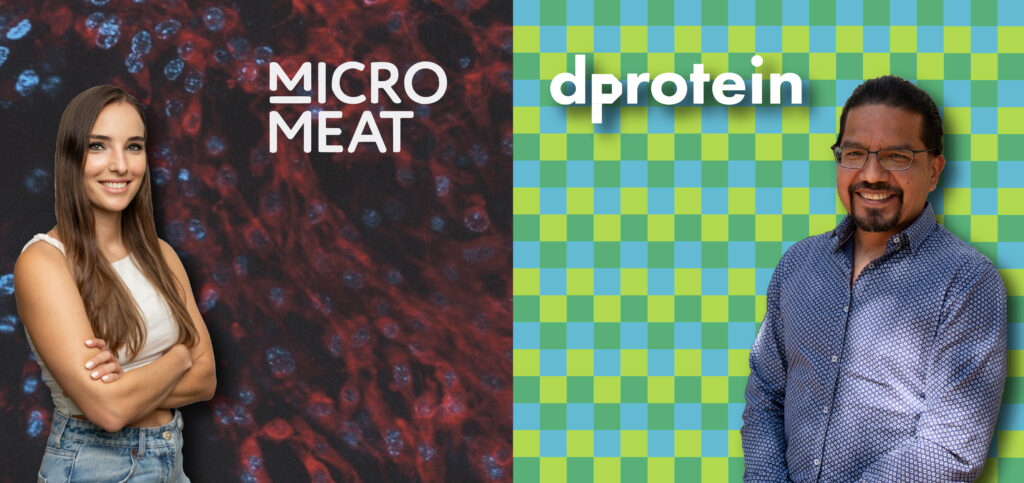
The Future of Food
By Garrett Dempsey, Ph.D.
April 2023

Agriculture and land use activities account for approximately 20 percent of global greenhouse gas emissions. Altering the current paradigm of food production and consumption will be critical if we’re going to avoid the worst impacts of climate change and achieve net-zero emissions by 2050, the deadline set by the United Nations’ Paris Agreement.
The development of alternative food sources can significantly reduce carbon emissions while providing healthy food options to a growing population. Endurance28 has invested in two technical founders who are building the future of food through their innovative technologies in cultured meats and alternative proteins.
Anne-Sophie Mertgen holds a Ph.D. in tissue engineering from ETH Zurich and a master of science degree in biomedical engineering from Imperial College London. She’s also the Founder and CEO of Micro Meat, a startup that enables companies making cultivated meat (meat grown from animal cells in a lab) to scale their production at lower costs by eliminating a bottleneck in the production process. Cultivated meats are produced in agitated tanks which create an inhospitable environment for cells, inhibiting their ability to grow efficiently. Micro Meat’s technology encapsulates cells in a proprietary scaffold that protects them from the external environment of the bioreactor, resulting in 50–70 percent higher production yields.
Micro Meat’s technology encapsulates cells in a proprietary scaffold that protects them from the external environment of the bioreactor, resulting in 50–70 percent higher production yields.
Micro Meat is in the process of building first partnerships with several cultivated meat companies in the U.S., Africa, Singapore and Japan, and has signed an MoU (memorandum of understanding) to produce cultivated meat in space through a partnership with Orbital Assembly Corporation.

Gabriel Del Rio holds a Ph.D. in Protein Engineering and Biotechnology and is an esteemed professor of biochemistry and structural biology at the Universidad Nacional Autónoma de México. He was awarded the prestigious Humboldt Research Fellowship in Germany, and has been a visiting professor at Humboldt University in Berlin and a scientist at Buck Institute for Aging in California. As Founder and CEO of DProtein, he is working to produce alternative proteins through fermentation, without the need for plants or animals. Current protein production systems are unsustainable, yet with a growing population there will be an increasing need to produce more protein. DProtein makes a protein powder in just six days that is odorless, tasteless and highly soluble, ensuring a wide variety of uses. The protein contains up to 2½ times more essential amino acids per gram of food compared to animal and plant sources, and its production consumes up to 1,000 times less water than a comparable beef protein.
In 2023, DProtein will be completing lab tests to apply for regulatory approval in Mexico and the U.S. Target customers include beverage and food manufacturers, who could use DProtein’s protein powder to fortify beverages, dairy products and baked goods without altering the products’ key characteristics. Beyond the initial protein powder, DProtein’s computational platform enables the design of novel proteins for the treatment of metabolic disorders such as phenylketonuria and chronic kidney disease.
Alternative food sources require 63–95 percent less land and use 51–78 percent less water.
Cultivated meats and alternative proteins can radically change our food systems. Conventional beef production is one of the largest contributors to agricultural greenhouse gas emissions. Alternative food sources are estimated to reduce these emissions by 78–96 percent. What’s more, alternative food sources require 63–95 percent less land and use 51–78 percent less water.
We are excited to support Anne-Sophie and Gabriel in their mission to tackle some of the biggest sustainability challenges facing the planet.
